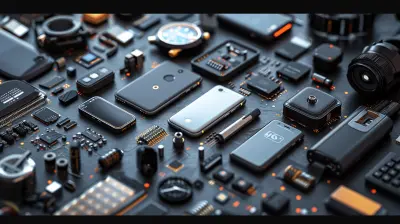How Cold Weather Affects Electric Vehicle Performance
27 May 2025
Electric vehicles (EVs) have surged in popularity in recent years, thanks to their eco-friendly nature and the promise of a cleaner, more sustainable future. But, like any technology, they have their quirks — one of the most significant being how cold weather affects their performance. If you're an EV owner or thinking about making the switch, you'll want to know how winter conditions can impact your car’s battery life, range, and overall driving experience.
In this article, we'll dive deep into how cold weather affects electric vehicle performance and what you can do to mitigate these effects. So, bundle up, grab a warm drink, and let's get started!
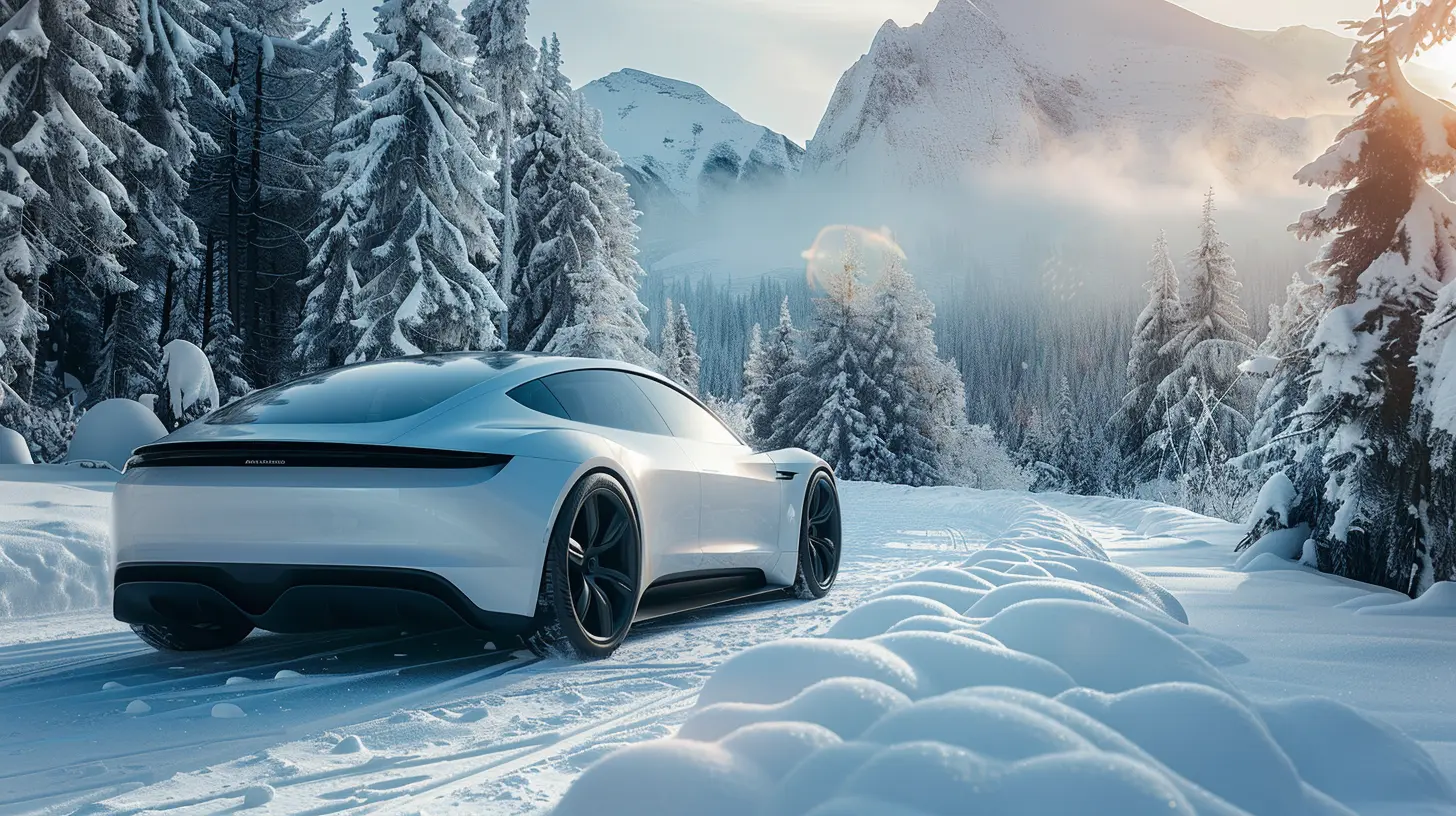
Why Does Cold Weather Impact Electric Vehicles?
Before we dive into the specifics of how cold weather affects EVs, let’s first understand why this happens. The main culprit? Lithium-ion batteries, which are the powerhouses behind most electric vehicles.Lithium-ion batteries don’t fare well in extreme temperatures, especially the cold. When the temperature drops, a series of chemical reactions inside the battery slow down, and the battery’s ability to hold and deliver energy decreases. It’s like trying to sprint in heavy boots – you’re not going to get very far, very fast.
This reduction in efficiency impacts everything from your car’s range to its charging speed. But that’s just the tip of the iceberg (pun intended). Let’s break down the effects in more detail.
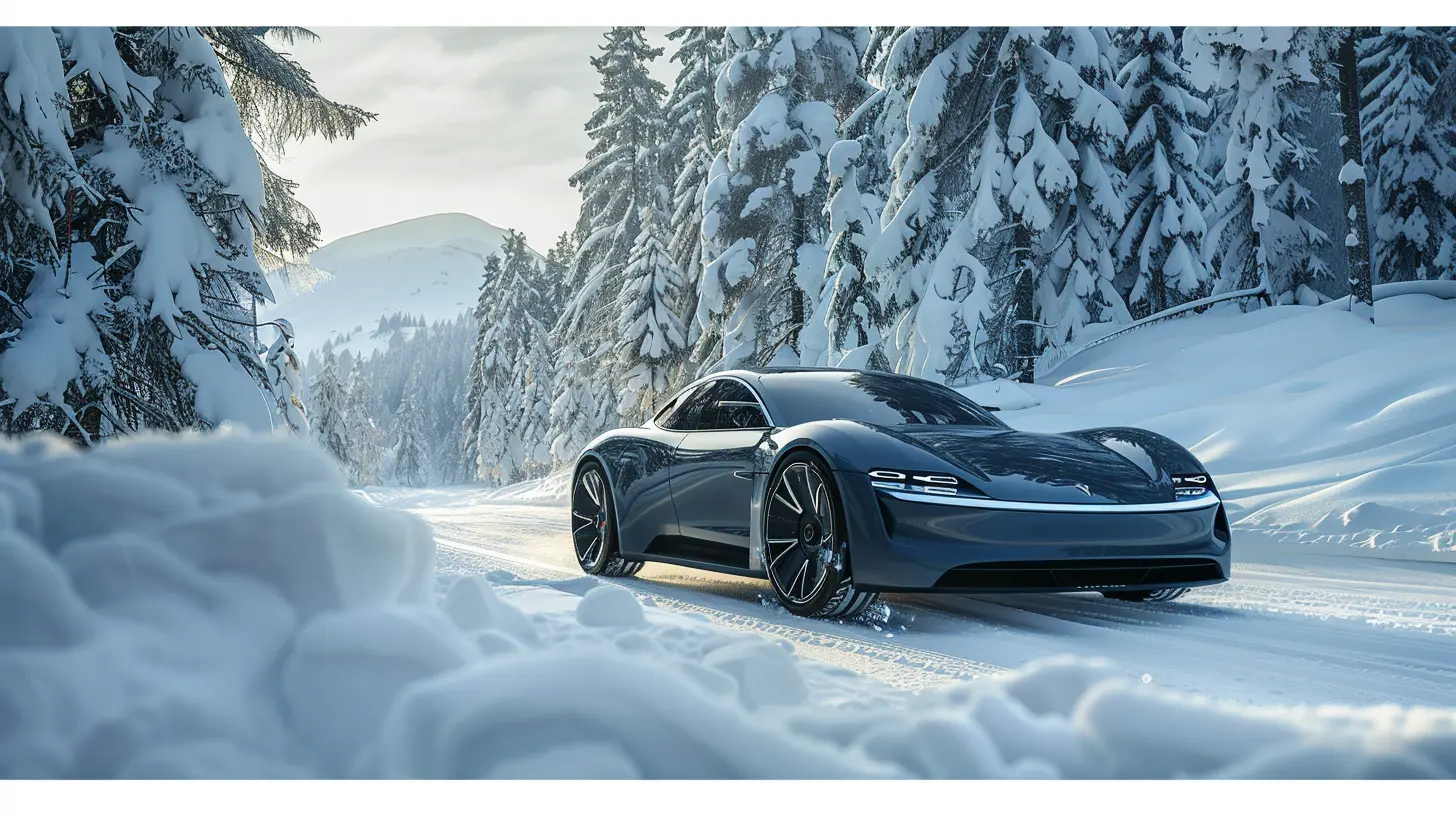
1. Reduced Driving Range
Perhaps the most noticeable effect of cold weather on EVs is the drop in driving range. According to several studies, cold weather can reduce an electric vehicle’s range by up to 40%. That’s a significant drop, especially if you're used to the full potential of your EV during warmer months.Why Does Range Drop?
There are a couple of reasons for this:- Battery Efficiency: As mentioned earlier, cold temperatures cause the lithium-ion battery to operate less efficiently, meaning it can’t hold as much charge or deliver power as effectively.
- Increased Power Usage: In cold weather, you’re likely using more energy for things like heating the cabin, defrosting windows, and keeping the battery warm (yes, EVs often have battery warming systems). All of these demands can drain your battery faster than usual.
It’s a lot like using your smartphone in freezing temperatures. You know how your phone dies faster when it’s cold outside, even if you haven’t been using it much? Same concept.
How Much Range Can You Lose?
The amount of range you lose will depend on several factors, including the make and model of your EV and how cold it gets. On average, you can expect a 15-40% reduction in range when the temperature dips below freezing. Some EV models fare better than others, thanks to features like advanced thermal management systems, but no EV is completely immune to the cold.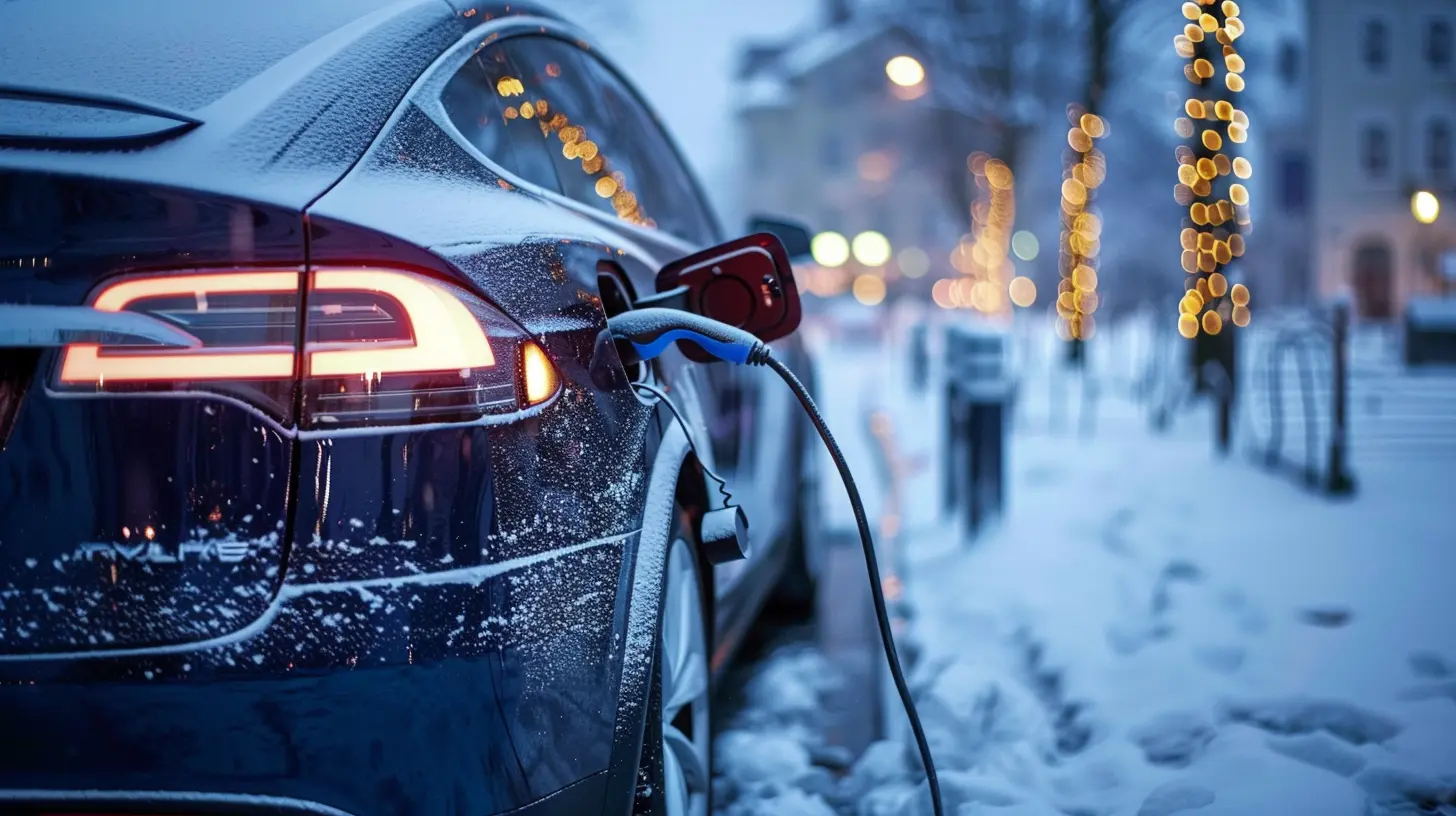
2. Slower Charging Times
Another downside of cold weather is that it can significantly slow down your EV’s charging times. If you’ve ever tried charging your phone in the cold, you’ve probably noticed it takes longer than usual. Again, the same principle applies to electric vehicles.Why Does Charging Slow Down?
In cold temperatures, the chemical reactions inside the battery slow down, and the battery itself becomes more resistant to charging. As a result, your EV’s charging system has to work harder to get energy into the battery, which takes more time.To protect the battery, many EVs will automatically reduce the charging speed in cold conditions. This is a safety feature designed to prevent damage to the battery, but it can be frustrating if you’re in a hurry to get back on the road.
Fast Charging in the Cold? Not So Fast
If you’re relying on fast chargers, you might be in for a surprise. Fast-charging stations, like the ones offered by Tesla’s Supercharger network or other DC fast chargers, can still charge your EV, but they won’t be as "fast" in the cold. You might find that a charging session that usually takes 30 minutes in warmer weather could take closer to an hour or more when the temperature plummets.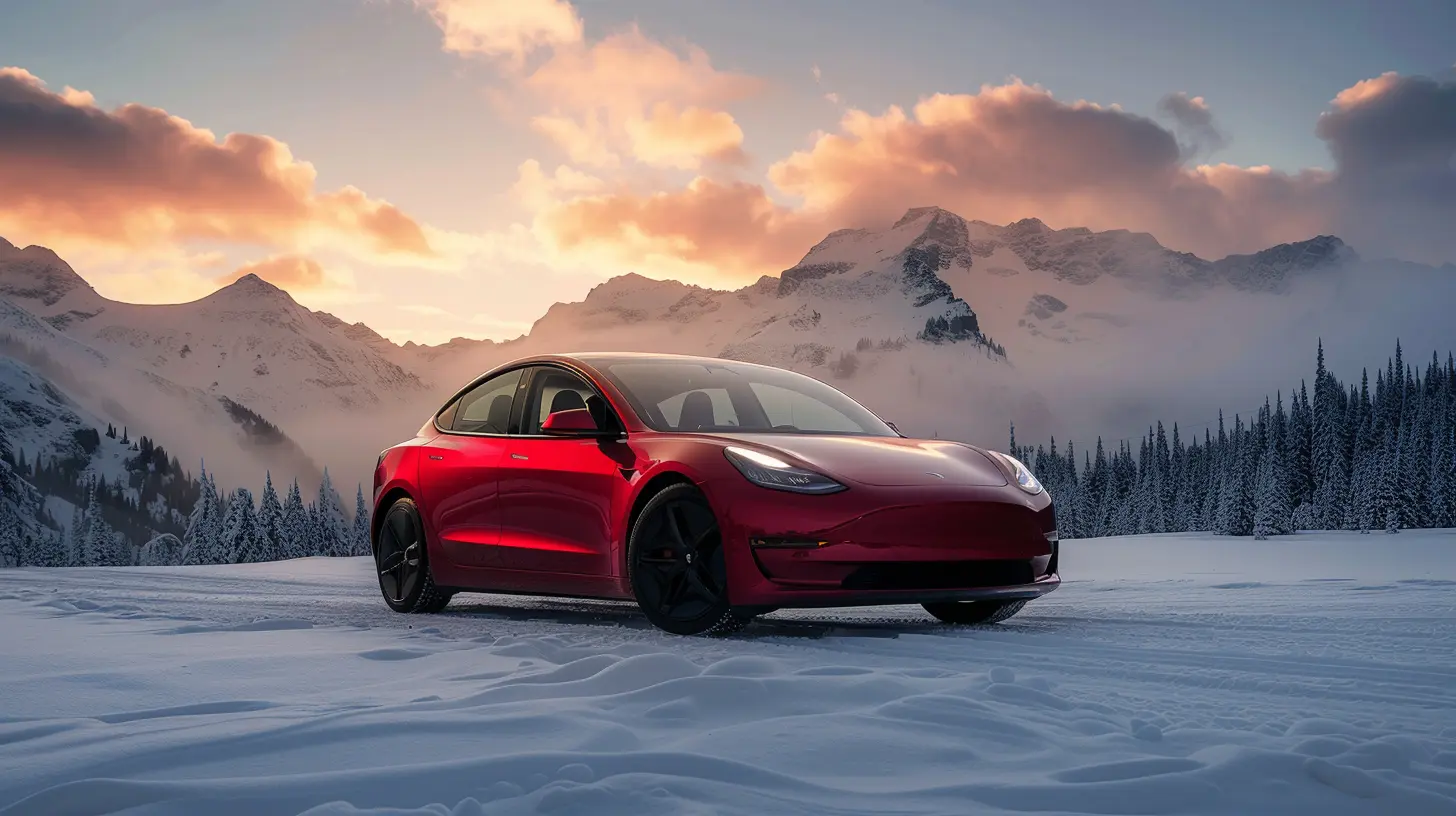
3. Increased Energy Consumption for Heating
One of the joys of driving an EV is the quiet, smooth ride. But that tranquility comes with a trade-off: electric vehicles don’t generate waste heat like gasoline-powered cars. In internal combustion engine (ICE) vehicles, waste heat from the engine is used to heat the cabin. EVs, on the other hand, have to rely on electricity to power the heating system, and that electricity comes directly from the battery.Heating vs. Range: A Balancing Act
When you turn on the heat in your EV, you're essentially dipping into the same energy reserve that powers your car. So, the more you crank up the heat, the more you eat away at your vehicle's driving range. It’s a balancing act between staying warm and maximizing your range.Some newer EVs come equipped with heat pumps, which are more energy-efficient than traditional resistive heating systems. These can help reduce the impact on your range, but they’re not available on all models.
A pro tip: pre-condition your EV while it’s still plugged in. This way, you can heat the cabin and battery without draining the battery’s charge while on the road.
4. Regenerative Braking Efficiency Drops
One of the coolest features of electric vehicles is regenerative braking, which recaptures energy when you brake and sends it back to the battery. It’s like getting a little energy boost every time you slow down.However, regenerative braking becomes less efficient in cold temperatures. This is because cold batteries can’t absorb energy as quickly, so the amount of energy recaptured during braking is reduced. In some cases, the regen system might be disabled altogether until the battery warms up.
This doesn’t mean your brakes won’t work – you’ll still have traditional mechanical brakes – but you might notice that your EV isn’t as "zippy" or efficient as it is in warmer conditions.
5. Tire Performance in the Cold
It’s not just the battery that’s affected by cold weather – your tires are, too. Cold temperatures cause the air inside your tires to contract, which can lead to lower tire pressure. Low tire pressure can reduce your EV’s efficiency, meaning you won’t get as much range out of a full charge.Additionally, cold tires have less grip on icy or snowy roads, which can affect handling and braking performance. If you live in an area with harsh winters, switching to winter tires is a must for both safety and efficiency.
How to Mitigate the Effects of Cold Weather on Your EV
Now that we’ve covered all the ways cold weather can impact your EV, let’s talk about what you can do to minimize these effects. While you can’t control the weather, you can take some steps to make your winter EV experience smoother.1. Precondition Your EV
As mentioned earlier, preconditioning your EV while it’s still plugged in can help warm up the cabin and battery without draining the battery’s charge. Many EVs have this feature built into their apps, so you can start heating up your car from the comfort of your home.2. Use Eco Mode
Most electric vehicles have an Eco Mode that limits power usage to extend your range. In cold weather, using Eco Mode can help conserve battery life by reducing unnecessary energy consumption.3. Park in a Garage
If possible, keep your EV in a garage overnight. This will help protect it from the elements and keep the battery warmer, which can improve its performance and range.4. Charge More Frequently
Since cold weather may reduce your range, you’ll want to charge your EV more frequently to avoid getting stranded. Don’t wait until the battery is nearly empty – top it off whenever you have the opportunity.5. Invest in Winter Tires
Winter tires are designed to provide better traction in cold, snowy, or icy conditions. Installing them on your EV can improve handling and efficiency in winter weather, giving you more confidence on the road.
The EV Cold Weather Debate: Is It a Dealbreaker?
So, is cold weather a dealbreaker for electric vehicles? Not necessarily. While EV performance does take a hit in freezing temperatures, these effects are manageable with a bit of preparation. The technology behind electric vehicles is constantly improving, and newer models are becoming better equipped to handle extreme weather conditions.Sure, you might have to charge more often or sacrifice a bit of range in the winter, but the benefits of driving an EV — like lower emissions, reduced fuel costs, and a quieter ride — often outweigh the drawbacks.
With some extra planning and a few smart strategies, you can enjoy driving your EV all year round, no matter how cold it gets outside.
all images in this post were generated using AI tools
Category:
Electric VehiclesAuthor:

Vincent Hubbard
Discussion
rate this article
3 comments
Oberon Hayes
This article insightfully highlights the critical relationship between cold weather and electric vehicle performance, emphasizing how battery efficiency and range diminish significantly, which consumers must consider for optimal usage.
June 9, 2025 at 10:59 AM

Vincent Hubbard
Thank you for your thoughtful comment! I'm glad you found the discussion on battery efficiency and range in cold weather valuable for consumers.
Eli Diaz
This article offers valuable insights into the impact of cold weather on electric vehicle performance. Understanding these effects is crucial for EV owners to optimize battery life and overall efficiency during winter months.
June 7, 2025 at 2:38 AM

Vincent Hubbard
Thank you for your feedback! I'm glad you found the insights valuable for optimizing EV performance in cold weather.
Jacob Harmon
Cold weather can reduce battery efficiency, decrease range, and impact charging times in electric vehicles, highlighting the importance of winter maintenance strategies.
June 4, 2025 at 4:50 AM

Vincent Hubbard
Absolutely, cold weather significantly impacts electric vehicle performance, making effective winter maintenance essential for optimal efficiency and range.



